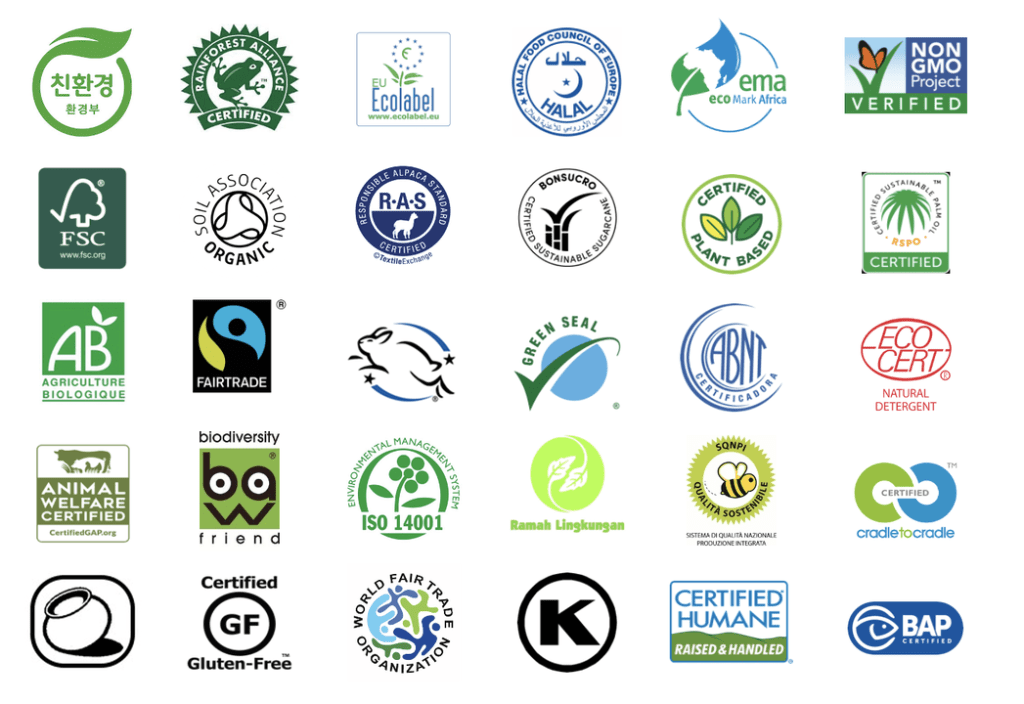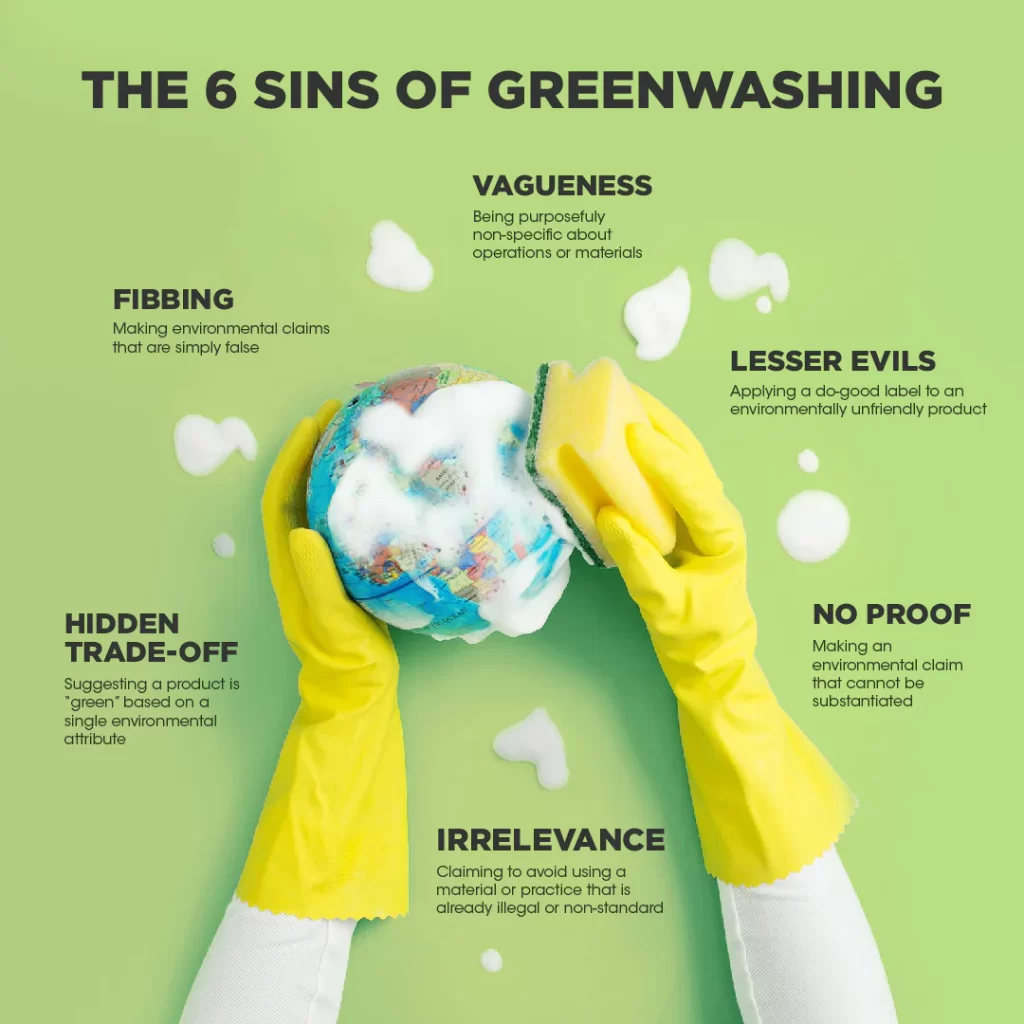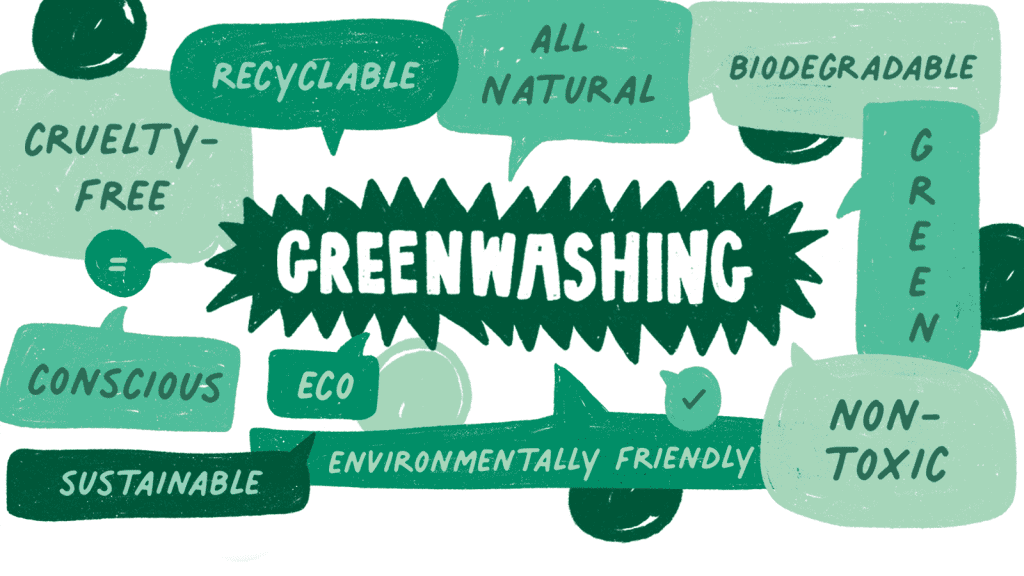Beneath the glossy veneer of eco-friendly marketing lies a murky world of exaggeration and outright deception. Companies slap green labels on products to capture environmentally-conscious consumers, wrapping their brands in the leafy embrace of Mother Nature – nevermind their actual environmental impact. These greenwashing companies take advantage of the fact that 47% of Global consumers are willing to pay more for sustainable products and that 75% of Global investors are now investing in sustainable businesses. But the truth will out. In the kingdom of greenwashing, all that glitters is not green.
To avoid being misled by greenwashing, consumers need to be vigilant and informed when making purchasing decisions. In this article, we’ll explore some practical tips on how consumers can prevent greenwashing, from looking beyond the label to checking for third-party certifications and evidence of a company’s commitment to sustainability.
How can you prevent being greenwashed by companies?
1. Look Beyond the Label
Don’t be fooled by green labels or eco-friendly claims on product packaging.

2. Do Your Research

Do some research on the company or product to understand their environmental impact. Look for information on their supply chain, manufacturing processes, and any environmental certifications they may have.
3. Look for Third-Party Certifications

Third-party certifications, such as the Forest Stewardship Council or Energy Star, can provide independent verification of a product’s environmental claims. Look for these certifications on product packaging or company websites.
4. Check for Details

Greenwashing often involves vague or unsubstantiated claims about a product’s environmental benefits. Look for specific details about how a product is environmentally friendly, such as the percentage of recycled content or the use of renewable energy sources.
5. Beware of “Green” Buzzwords

Be wary of buzzwords like “natural,” “organic,” or “sustainable” that are not backed up by specific environmental claims or certifications. These terms can be misleading and are often used to make a product appear more environmentally friendly than it actually is.
6. Look for Evidence of Commitment
Companies that are genuinely committed to sustainability will have evidence of their efforts on their website or product packaging. Look for information about their sustainability goals, initiatives, and progress.
In conclusion, The kingdom of greenwashing may seem powerful, with its slick marketing masking shady truths but it cannot withstand when the people unite. Now the choice is ours – will we stay passive subjects of corporate green spin, or become champions of sustainability truth? By banding together and following the tips outlined here, we can lift the veil of greenwashing to reveal realities both ugly and beautiful. We can redirect our dollars towards products and companies driving authentic environmental change and leave misleading green imposters behind. The power lies not in their hands, but in ours.






